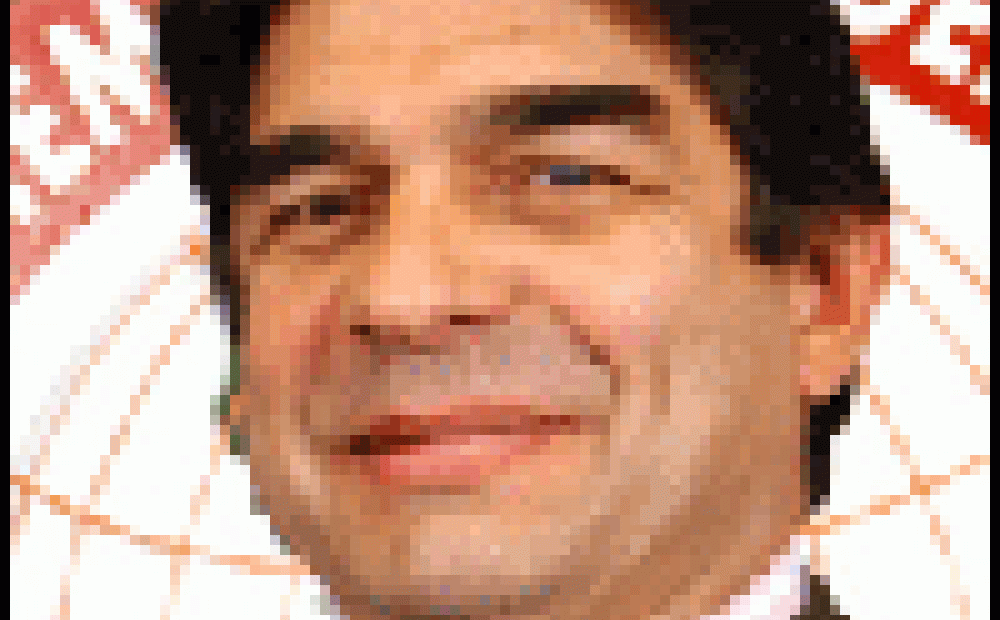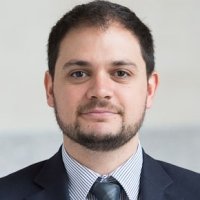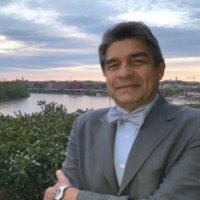Brazil, Argentina, and the Road to the NPT

For several decades Argentina and Brazil sought to develop their own indigenous nuclear programs and tried to resist the expansion of the global non-proliferation regime. Deep mutual suspicion coupled with status competition colored their relationship and their standing in the face of the major nuclear powers. Starting in the 1980s, however, a range of mechanisms led to an emerging system of mutual inspections that transformed geopolitics in South America, defused threat perceptions, helped the civilian leadership extricate the military from the nuclear programs, and paved the way for entry into the NPT.
Matias Spektor, an assistant professor of international relations at Fundação Getulio Vargas draws on dozens of oral history interviews and thousands of recently declassified documents in Argentina, Brazil, and the United States to tell the story.
Joining Spektor on the panel is Luis Bitencourt, the associate dean of academic affairs and professor of national security affairs at the National Defense University and Greg Thielmann, senior fellow at the Arms Control Association.
Christian Ostermann, director of the Wilson Center's History and Public Policy Program, will chair the event.
Matias Spektor is an assistant professor of international relations at Fundação Getulio Vargas in Rio de Janeiro, Brazil, where he also coordinates the Center for International Relations. He earned his Ph.D. from Oxford University in 2007. Matias is currently working on an archive-based history of nuclear relations between Argentina and Brazil.
Luis Bitencourt is the associate dean of academic affairs and professor of national security affairs at the National Defense University (NDU). Prior to joining NDU, Bitencourt was the director of the Wilson Center's Brazil Project and a visiting professor at the Georgetown University. For most of his professional life, Bitencourt simultaneously pursued two careers. In the Brazilian federal administration, he performed several functions related to research and training in strategic planning, international security, public administration, and intelligence (1974-1999). At the Catholic University of Brasilia, Bitencourt was a professor and dean (1987-2000). Bitencourt also worked for the United Nations as a Regional Coordinator in East Timor, as a member of the Team of Electoral Experts in Tajikistan, and as a rapporteur for the U.N. Commission on Intervention and Sovereignty. He has a doctorate and an M.A. in World Politics from the Catholic University of America an M.A. in Political Science from the University of Brasilia, and a Bachelor's in Mathematics. His research interests include hemispheric security, terrorism, trade, and democracy.
Greg Thielmann is senior fellow at the Arms Control Association. Theilmann has served more than three decades in the executive and legislative branches of government, specializing in political-military and intelligence issues. Before joining ACA in 2009, he worked for four years as a senior professional staffer of the Senate Select Committee on Intelligence (SSCI). He was previously a U.S. Foreign Service Officer for 25 years, last serving as director of the Strategic, Proliferation and Military Affairs Office in the Department of State's Bureau of Intelligence and Research. His foreign posts include deputy political counselor of the U.S. Embassy in Brasilia, Brazil; political-military affairs officer in Moscow, USSR; and political-military affairs Officer in Bonn, Germany. Thielmann also served as deputy director of the State Department's Office of German, Austrian and Swiss Affairs; special assistant to Ambassador Paul Nitze (then special adviser to the president and secretary of state on arms control matters); and State Department advisor to the U.S. Delegation at the Geneva INF arms control negotiations. Greg is a member of the Council on Foreign Relations and a former member of the Board of Directors of the Arms Control Association (2003-2005). His July 2003 appearance at an ACA press briefing on faulty intelligence assessments on Iraq's WMD capabilities led to a CBS News 60 Minutes II segment entitled The Man Who Knew, which won an Emmy Award for reporter Scott Pelley.
Speakers

Center for International Relations, Fundação Getulio Vargas
Arms Control Association

Professor of International Security at the Center for Hemispheric Defense Studies, National Defense University; Visiting Professor, Georgetown University

Hosted By

Nuclear Proliferation International History Project
The Nuclear Proliferation International History Project is a global network of individuals and institutions engaged in the study of international nuclear history through archival documents, oral history interviews, and other empirical sources. Read more


Cold War International History Project
The Cold War International History Project supports the full and prompt release of historical materials by governments on all sides of the Cold War. Read more


Brazil Institute
The Brazil Institute—the only country-specific policy institution focused on Brazil in Washington—aims to deepen understanding of Brazil’s complex landscape and strengthen relations between Brazilian and US institutions across all sectors. Read more
